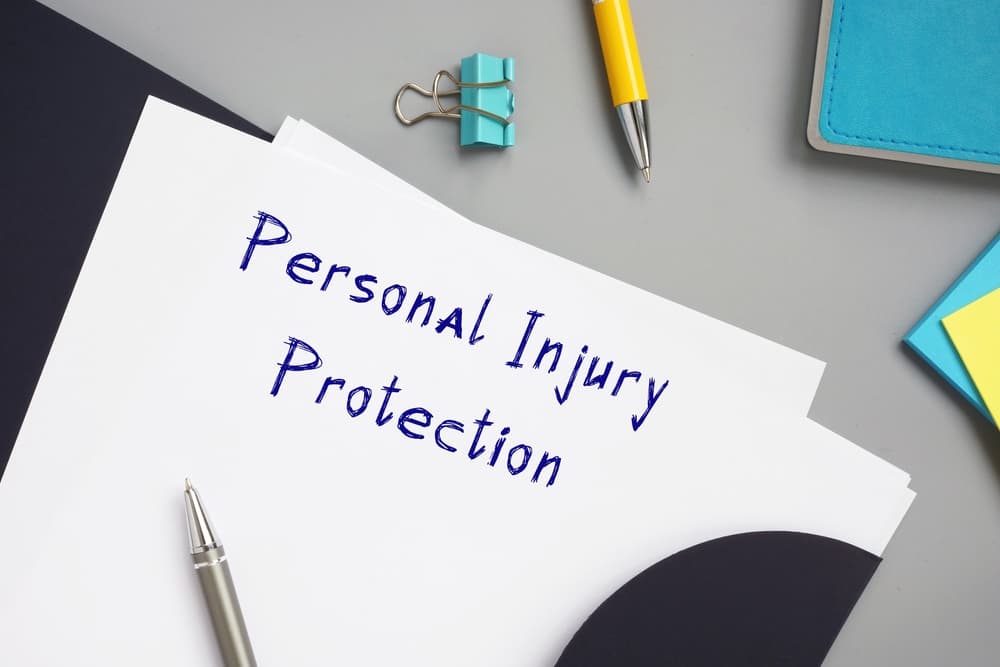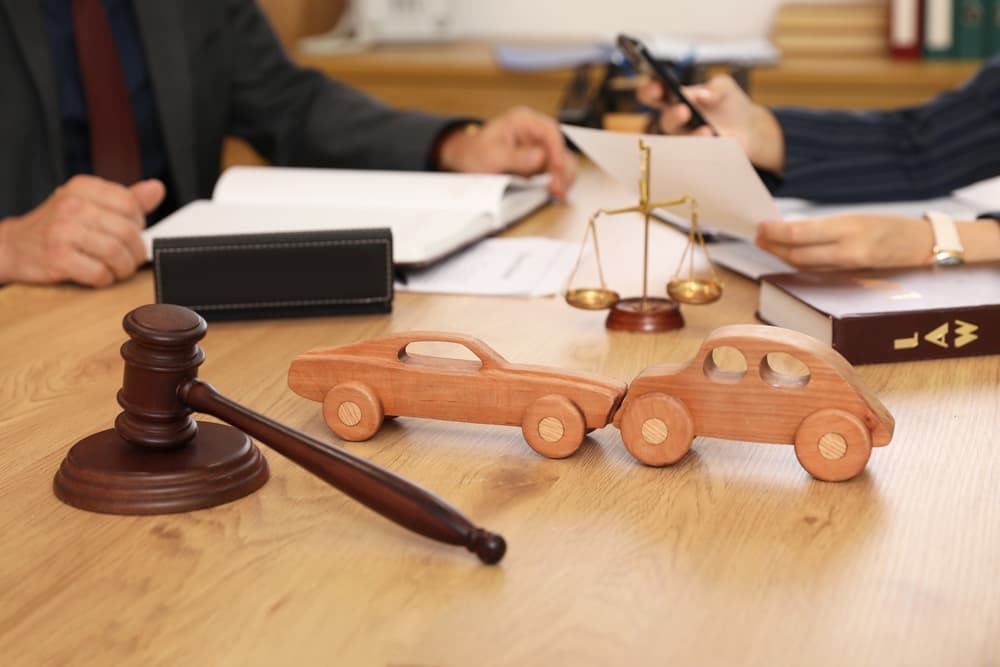The term “no-fault” doesn’t mean nobody was at fault for a car accident—it means your state has specific laws about how accident victims can seek compensation. In no-fault states, you typically start by filing a claim with your own insurance company for immediate medical expenses and lost earnings, but you may still have the right to pursue the at-fault driver for additional damages under certain circumstances.
Understanding your rights after a no-fault accident isn’t just about insurance policies and legal procedures—it’s about reclaiming control over your life when everything feels chaotic and uncertain. A car accident attorney will explain technical concepts like no-fault insurance in terms you can easily understand. Even more importantly, your lawyer will handle the claims process (and any necessary lawsuit), so you don’t have to.
Why Some States Use a No-Fault System as Their Auto Insurance Claim Framework

No-fault car insurance is designed to streamline the claims process by requiring each driver’s insurance company to cover their own policyholders’ damages, regardless of who caused the accident. This system aims to reduce litigation costs and provide faster compensation for medical expenses and lost income.
Some proposed benefits of no-fault systems include:
- Faster claim resolution since fault determination isn’t required initially
- Reduced court congestion and legal fees
- Guaranteed coverage for immediate medical needs regardless of fault
- Lower administrative costs for insurance companies
Twelve states plus Puerto Rico operate under no-fault insurance laws, each with varying coverage requirements and lawsuit thresholds.
What Every Claimant Must Consider When Their Accident Happens in a No-Fault State
Each state’s insurance framework is what it is. As the accident survivor, you must work within this framework, making the best of whatever system the state uses. When your accident happens in a no-fault state, you should be aware that:
- You’ll likely file a personal injury protection (PIP) claim with your insurance provider: You’ll file a claim with your own insurance company, regardless of who caused the accident. This is what “no-fault” refers to. Data suggests that the smaller a crash victim’s vehicle is, the more likely they are to file a PIP claim.
- Filing deadlines may be condensed: You may have a shorter deadline to file a PIP claim than in fault-based states—sometimes as little as 30 days after the crash.
- You will likely file a property damage claim separately: No-fault rules apply to injuries, not vehicle damage. For repairs, you may still file a claim with the at-fault driver’s insurer or your own, depending on policy details and other considerations.
- Suing can be more difficult in no-fault states: One motivation for using the no-fault system is to reduce instances of litigation, so it may be more difficult to sue liable parties. You may need to prove substantial injury to be eligible to sue, and an attorney is uniquely positioned to help do that.
You must also recognize that the no-fault system is not a perfect system. Whenever an insurance company has to pay an accident victim, you should expect lowball offers, arguments over which of your losses are covered, questions about the severity of your injuries, and other bad-faith tactics—the no-fault system does not solve these headaches.
Should I Hire an Attorney If My Car Accident Happened in a No-Fault State?
Remember that a “no-fault insurance system” does not mean a “no-sweat insurance system.” You will face all the same challenges that come with any insurance claim, and perhaps a few more, so it only makes sense to hire an attorney who will:
- Maximize the benefits you’ve paid for: You are entitled to PIP benefits, and a lawyer can help properly document and submit your claim to maximize the medical, earnings, and service benefits available under your policy.
- Fight back against bad faith: Insurers may undervalue or reject legitimate claims. Your attorney will negotiate or take legal action to secure the compensation you’re owed.
- Answer the “lawsuit question”: A car accident lawyer can assess whether your injuries meet the “serious injury threshold” required to file a lawsuit outside the no-fault system.
- Take care of the small details, which can be deadly to a claim: Yes, a typo or one-hour delay can sink a no-fault claim. Legal counsel helps ensure you meet all filing requirements and avoid mistakes that can jeopardize your claim.
The gravest mistake you can make right now is to underestimate the claims process, bite off more than you can chew, and suffer financially as a consequence because your case falls short. Legal guidance can reduce stress during recovery and protect your long-term financial and medical well-being.
You May File with Multiple Insurers, Your Lawyer Will Lead Each of Your Claims

Dealing with the aftermath of a serious car accident while trying to recover from injuries creates an immensely stressful, if not impossible, situation for mere mortals. An experienced car accident attorney provides the legal knowledge and advocacy you need while allowing you to focus on healing, and your legal team may fight for your financial recovery by:
- Securing police reports: Obtaining official documentation and witness contact information before files get misfiled.
- Interviewing witnesses: Speaking with people who saw what happened while their memories remain fresh and accurate.
- Photographing the scene: Documenting road conditions, signage, and physical evidence that might disappear.
- Obtaining surveillance footage: Requesting video from nearby businesses before automatic deletion systems erase key evidence.
- Working with reconstruction experts: Bringing in professionals who can analyze the physics of your crash to determine fault.
This immediate, intentional action often distinguishes a successful case from one that falls apart due to missing evidence that could have proven your right to compensation.
Car Accident Attorneys Coolly Handle the Many Challenges That PIP and Property Damage Claims Present
Any car accident claims can be complex, but no-fault claims tend to introduce additional hurdles that make the process especially frustrating for injured drivers. Your attorney will spare you from the unpleasant aspects of the no-fault claims process, which can include:
- Dealing with an additional insurance company (your own): A no-fault system requires you to file through your own insurer first, which may involve pushback, slow processing, or claim denials—even when you’re not at fault.
- Compensation caps: PIP coverage has limits that may not fully cover your medical bills or lost earnings, especially in serious accidents. Your attorney will get creative and explain all your options so these limits do not place you in a difficult financial situation.
- Abiding by complicated documentation requirements: Insurers often require detailed medical treatment records, earnings loss, and other damages, which can slow down or complicate the claim process. Attorneys excel in organization and documentation, and they’ll take the administrative burden off you.
- Trying to avoid premium increases: Filing a claim—even under no-fault—can still result in higher insurance premiums, depending on the insurer and your driving history. Your attorney will be cognizant of this risk, and their strategy may be to spare you from such long-term financial burdens.
These are only some of the many challenges and demands that no-fault claims can impose. Your health has to come first, so let an attorney handle the nitty gritty of your claim(s).
What Losses Can a Personal Injury Protection Claim Cover?

No-fault insurance typically covers immediate medical expenses and a portion of lost earnings, but these benefits often fall short of covering the full scope of an accident victim’s losses. The reality is that basic no-fault coverage was designed decades ago and hasn’t kept pace with modern medical costs or the true impact of serious injuries. The specific benefits available vary by state, but most no-fault systems provide:
- Medical coverage: Pays for hospital stays, surgeries, rehabilitation, and ongoing therapy sessions.
- Wage replacement: Provides partial compensation for time unable to work, usually around 60-80 percent of your salary.
- Essential services: Covers help with household tasks you can no longer perform due to injuries.
- Transportation: Reimburses travel costs for medical appointments and treatments.
- Home modifications: Sometimes covers necessary changes to make your home accessible if you’re disabled.
These benefits provide immediate relief, but they typically come with strict limits that may not adequately address severe injuries or long-term disabilities that completely alter your life’s trajectory. This is where the ability to pursue additional compensation becomes vital.
Seeking Compensation Beyond the Limits of No-Fault Claims
Beyond no-fault benefits, accident victims can recover additional damages through claims against the at-fault driver or other negligent parties for:
- Medical expenses that exceed your no-fault coverage limits
- Lost earnings beyond what your personal injury protection provides
- Future medical costs for ongoing treatment and rehabilitation
- Pain and suffering (such as post-traumatic stress disorder, physical pain, anxiety, depression, and lost quality of life)
- Loss of earning capacity if you can’t return to your previous job
This broader compensation recognizes that serious accidents create losses that extend far beyond what basic insurance coverage can address, particularly when dealing with life-altering injuries.
Wrongful Death Damages in a No-Fault Insurance System
When an accident claims a life, the surviving family members face both emotional devastation and financial hardship that can last for decades. Wrongful death damages aim to compensate families for their profound losses, though no amount of money can truly make up for the loss of a loved one.
The law recognizes several types of losses that families experience when someone dies in a car accident:
- Lost future earnings: Compensates for the financial support the deceased would have provided over their lifetime.
- Medical expenses: Covers the costs of treatment between the accident and death.
- Funeral and burial costs: Reimburses families for the immediate expenses of laying their loved one to rest.
- Loss of companionship: Acknowledges the emotional and social support that’s been permanently lost.
- Loss of guidance: Recognizes the advice, wisdom, and direction the deceased provided to family members.
- Household services: Compensates for the valuable services the deceased performed around the home.
Your attorney will explain how they can pursue justice for a wrongful death within the broader context of a no-fault insurance system. Rest assured, they will do so urgently and compassionately.
Contingency Fee Agreements Mean Anyone—Including You—Can Hire a Car Accident Lawyer

The financial burden of a serious car accident can make hiring an attorney seem like a non-starter. Contingency fees change everything by placing the financial burden on the lawyer rather than the client hiring that lawyer after a serious car accident.
Under a contingency fee arrangement, your attorney only gets paid if they successfully recover your compensation. This means your lawyer will not ask you for any money directly, and it also means your attorney has a direct, significant financial incentive to secure as large a settlement or verdict as possible.
Contingency fees enable accident victims to pursue claims against well-funded insurance companies and corporate defendants without going into debt or even dipping into their bank accounts to pay legal fees. All a lawyer must do to earn their fee is succeed at their job. Seems fair, right?
What to Do After You Hire Your Car Accident Lawyer
If your attorney is dealing with insurers and handling everything else your case requires, what do you do? Your only responsibilities as the client are:
- Staying accessible by answering your lawyer’s calls
- Committing to treatment, which will spare you from accusations that you are exaggerating injuries or delaying your own recovery
- Guarding your online presence, which can be used against you during the claims process
- Organizing your documentation by keeping thorough records of medical visits, out-of-pocket costs, and how the injury interferes with your daily life
Your attorney will guide you through each of these responsibilities. They will also contact you throughout your case, soliciting your feedback and ensuring their representation meets your expectations.
Do Not Wait to Hire Your Car Accident Attorney, They Will Handle Any PIP Claims, Property Damage Claims, and Lawsuits You Pursue
Most states have strict deadlines for filing claims, and deadlines specific to PIP claims tend to be tighter than most. Even if there were no deadlines to abide by, your lawyer will want to secure evidence and document your accident-related damages as soon as possible—steps they can only take once you have hired them.
Do not wait to complete your free consultations with prospective firms, then hire the Manassas personal injury law firm you believe is most qualified to secure compensation for you.
